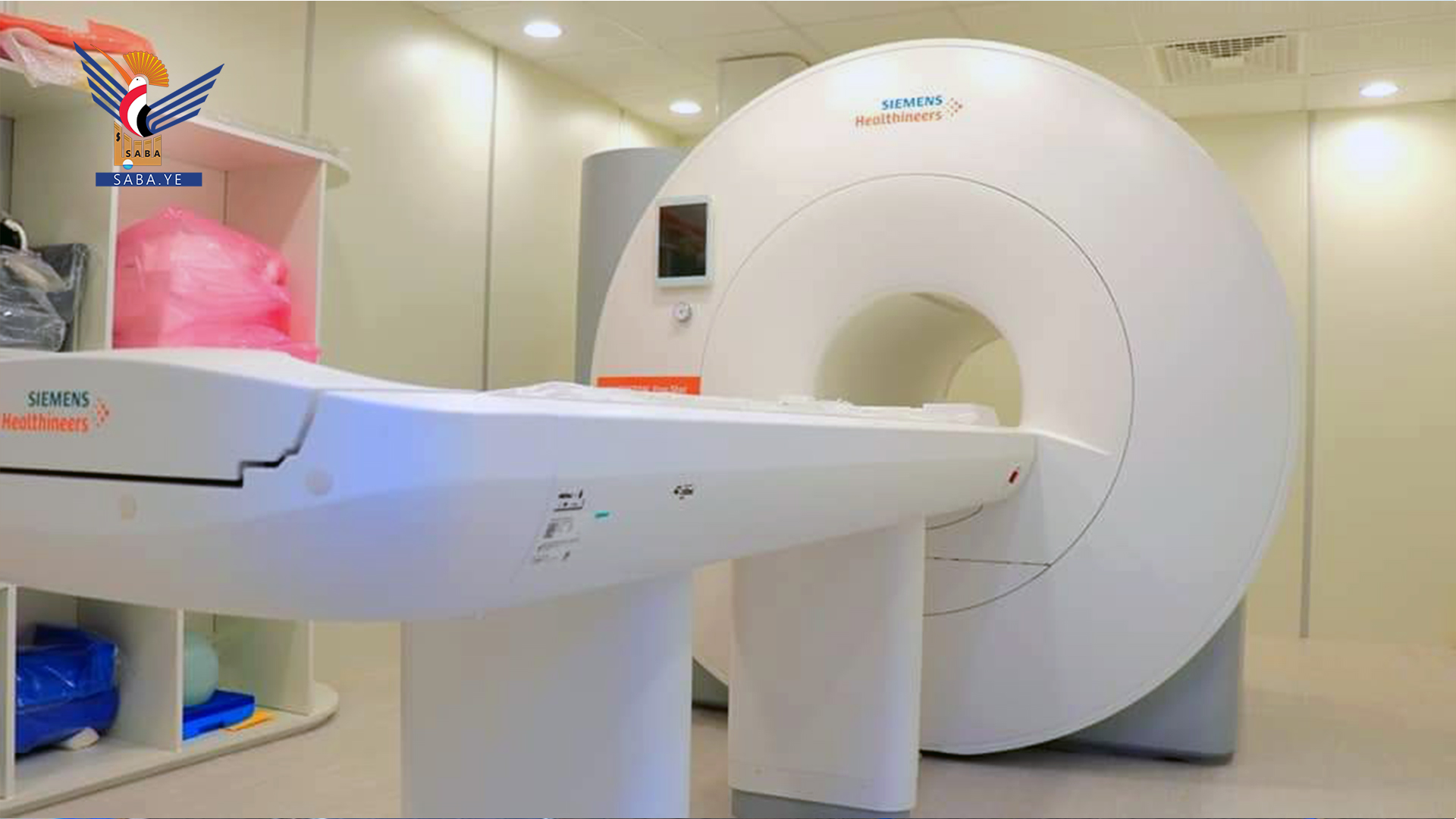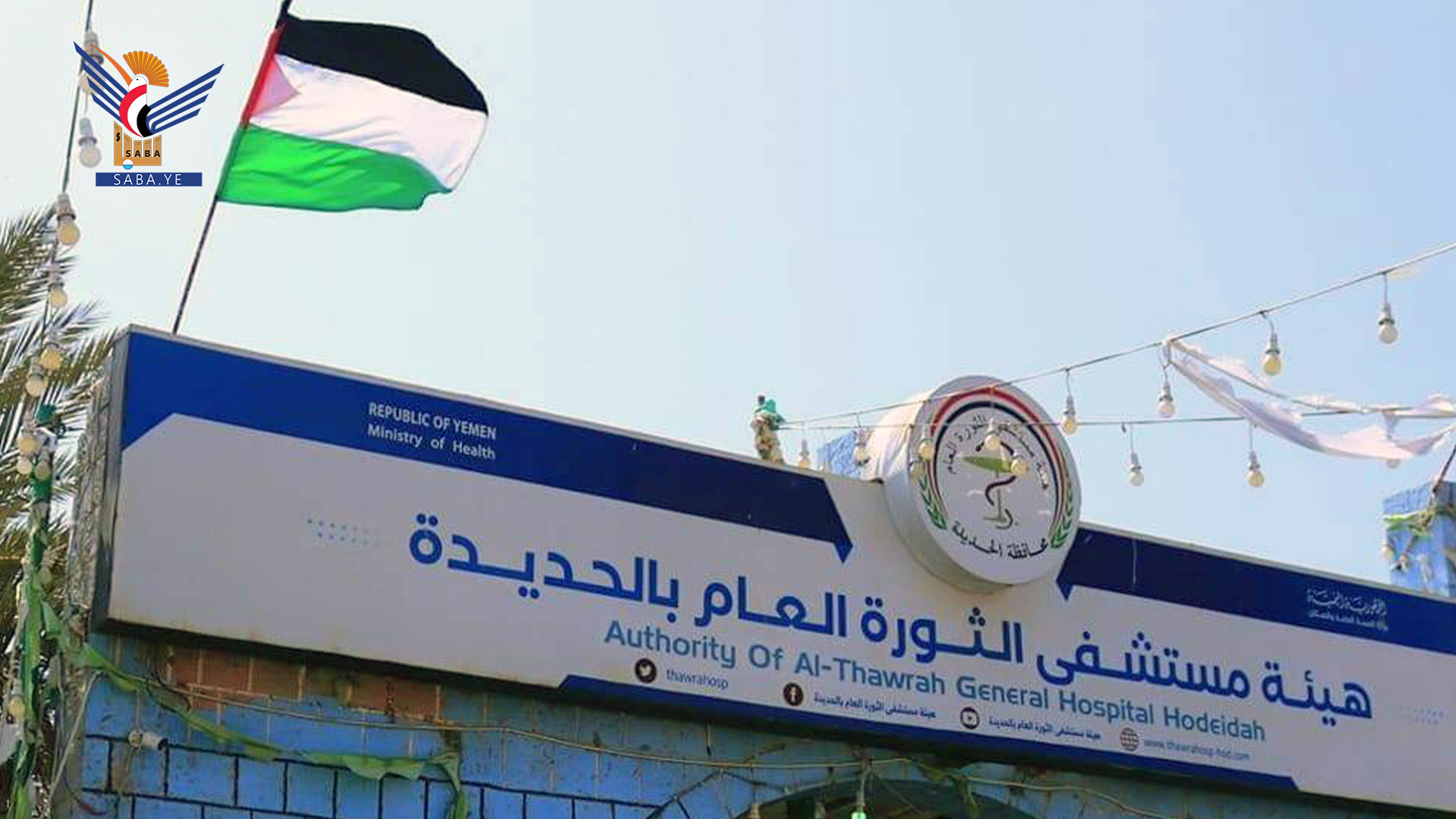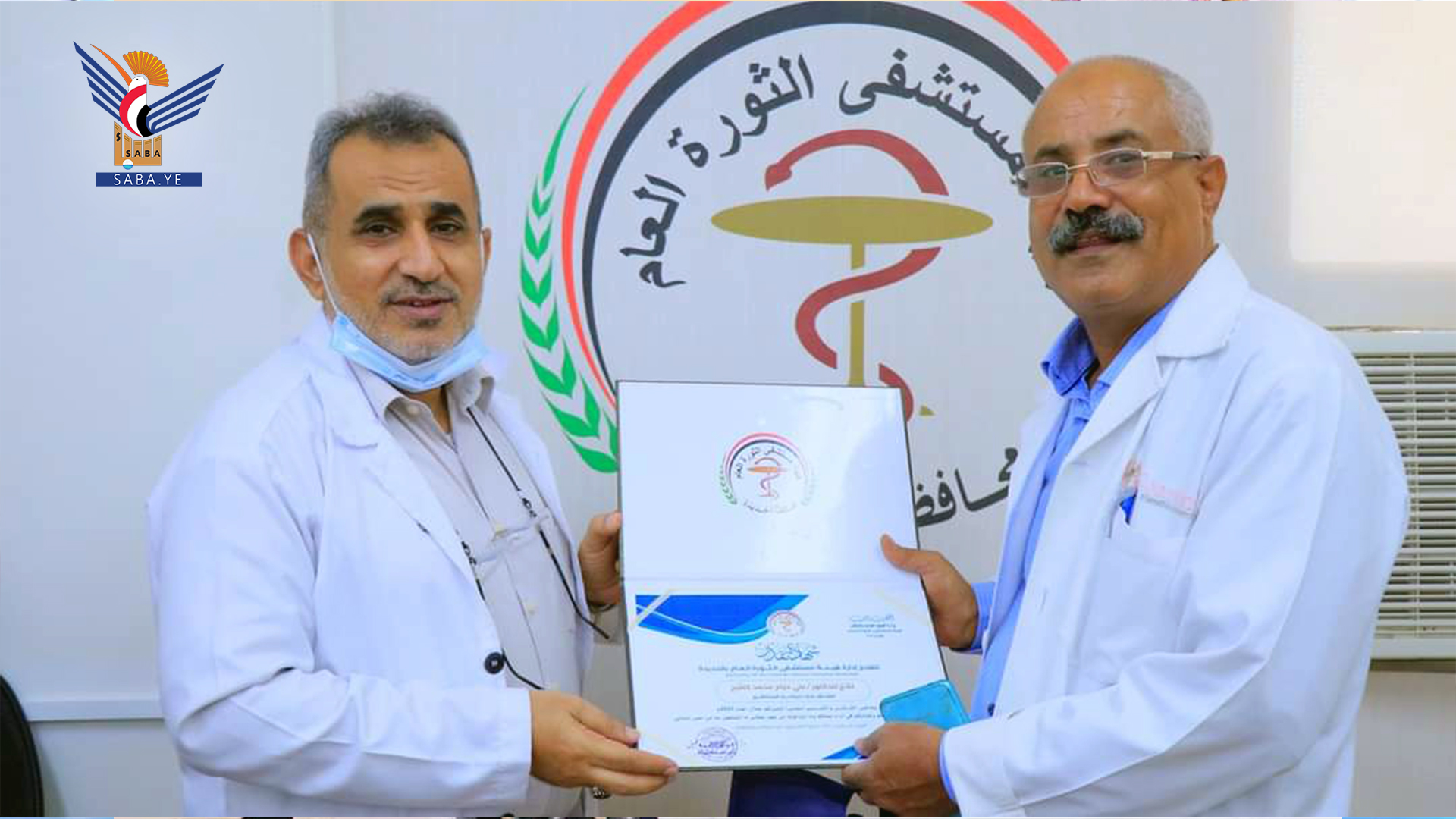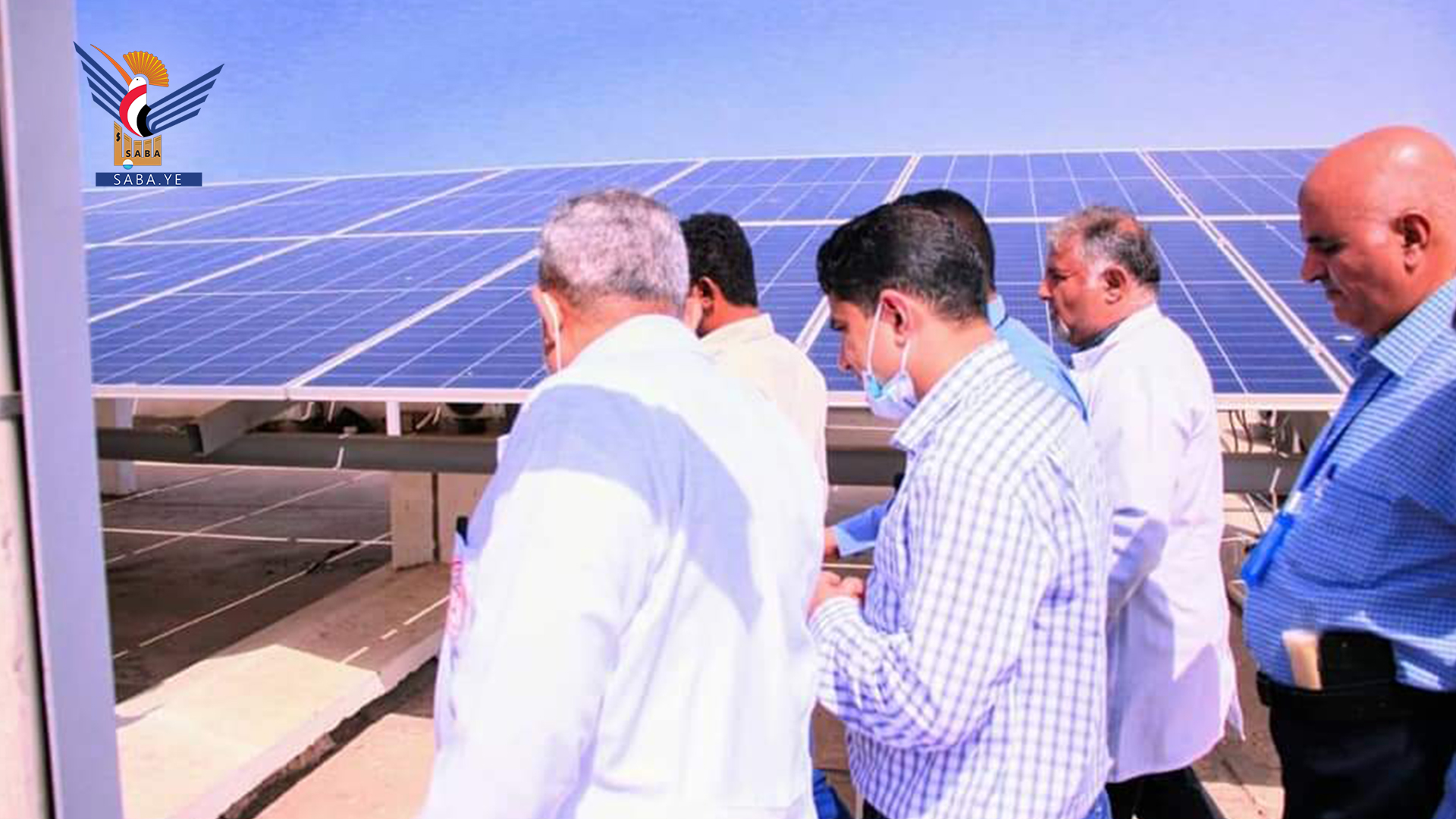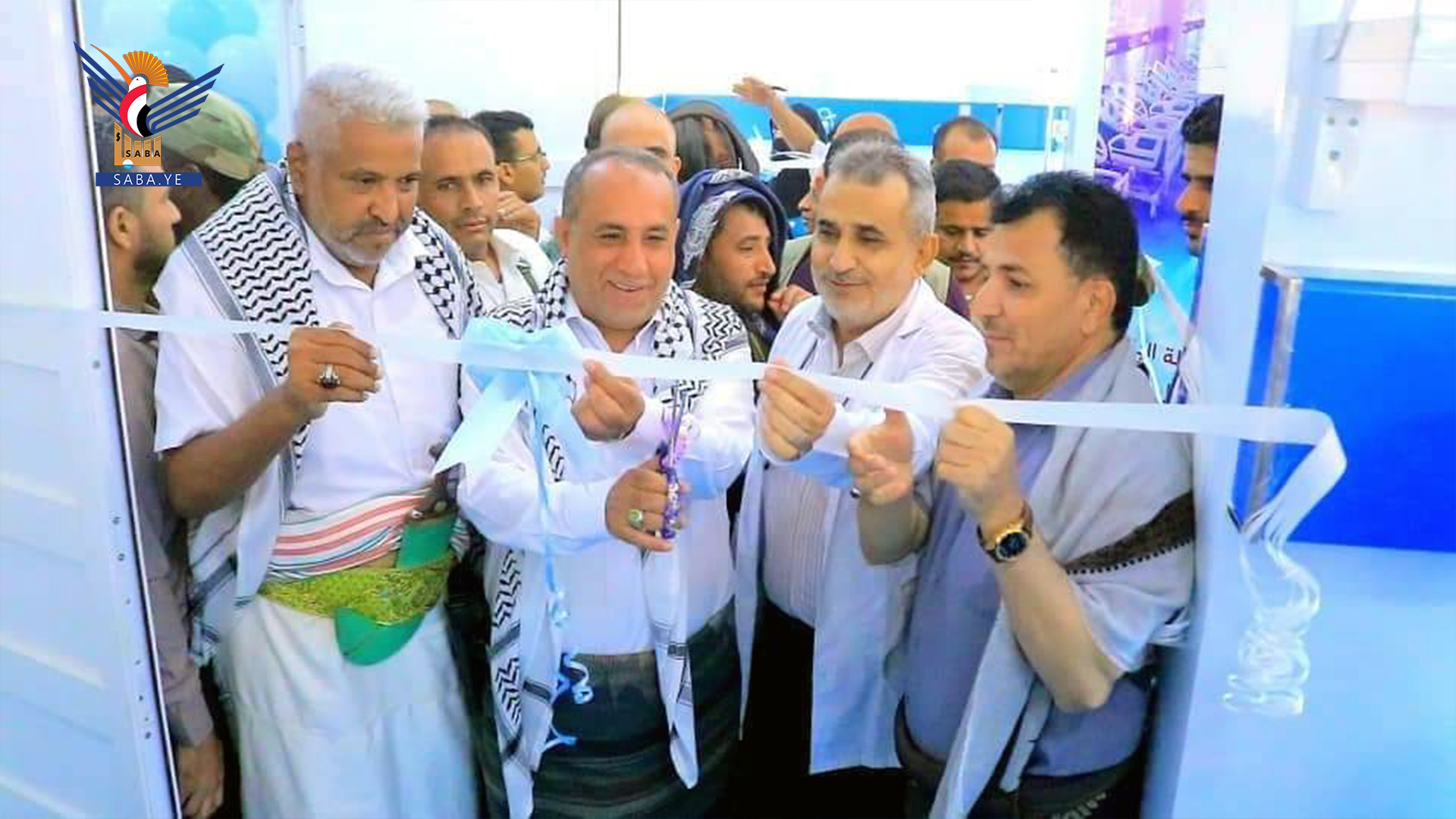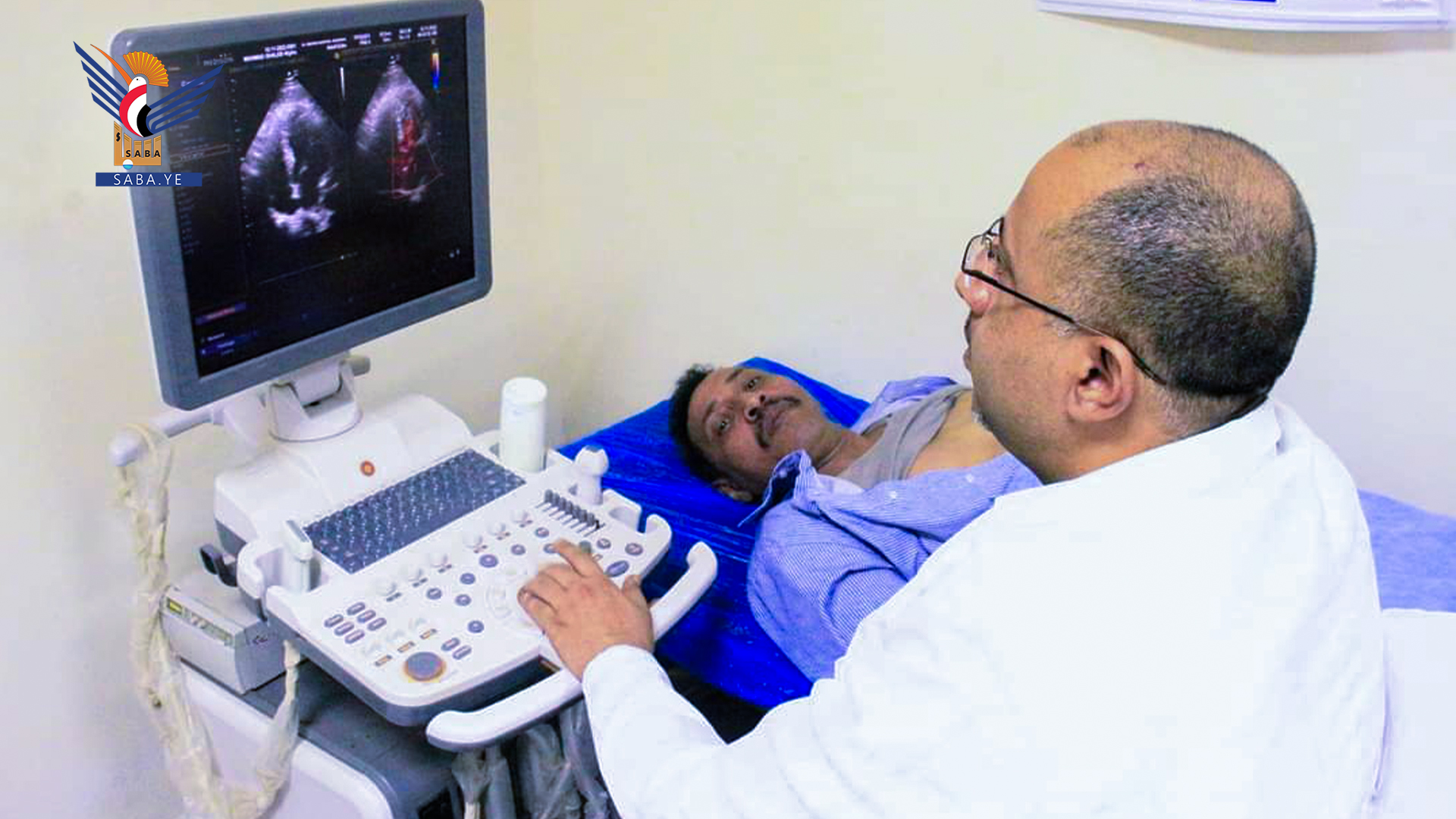
HODEIDA September 01. 2024 (Saba) - Al-Thawra General Hospital Authority in Hodeida has made significant strides in development and modernization over the past year, improving its medical and diagnostic services for 783,976 patients.
Recent projects have included major infrastructure upgrades, the establishment of new specialized centers, and the expansion of the hospital's bed capacity to 557.
The hospital now features five emergency centers, five intensive care units, and 22 outpatient clinics, alongside enhanced ambulance services.
Key Improvements:
The authority has introduced advanced medical equipment such as a cardiac catheterization unit, endoscopes for surgical, digestive, and urinary tract procedures, and two MRI machines and a CT scanner.
These upgrades reflect a substantial advancement in medical services and technology, including the establishment of the Malnutrition Treatment Center and the Tropical and Infectious Medicine Center, the only one of its kind in the governorate.
The authority has also been recognized as a branch of the Yemeni Council for Medical Specialties, offering professional master's and Yemeni fellowship programs in various specialties including obstetrics, pediatrics, general surgery, and more.
Service Highlights:
The hospital's annual report for 1445 AH reveals that it provided care to 783,976 patients. Service statistics include:
- 487,895 outpatient visits
- 161,853 cases at the children's emergency center
- 100,892 general emergency cases
- 20,248 blood bank emergency cases
- 10,091 obstetric emergency cases
- 2,997 burn emergency cases
Additionally, the hospital handled 33,302 physiotherapy cases, 374,780 medical laboratory tests, and 94,752 X-ray procedures. It also performed 13,626 surgical operations across various specialties.
The hospital addressed the needs of 10,055 patients with immunodeficiency, 13,385 cancer patients, and 10,451 patients with thalassemia. The Malnutrition Center treated 8,908 cases, with 1,228 receiving services from the Severe Malnutrition Treatment Center.
New Projects and Equipment:
In the past year, the authority has launched several new projects, including a Child Care Center for Premature Newborns, a newly rehabilitated Malnutrition Treatment Center, and a new general intensive care unit. Other achievements include the completion of the Artificial Limbs and Prosthetic Devices Center and the expansion of advisory clinics. A significant addition is a 300-kilowatt solar energy system to enhance sustainability.
Community Outreach:
The hospital has also supported free medical camps and awareness campaigns addressing conditions such as high blood pressure, heart disease, diabetes, and breast cancer, demonstrating its commitment to community health beyond its walls.
The Al-Thawra General Hospital Authority in Hodeida has furthered its commitment to patient care with a series of new initiatives and advancements. Over the past year, the hospital has organized scientific seminars focused on pediatric and neonatal diseases, food-related illnesses, and heart conditions. These efforts align with the Authority's goal of ensuring patient safety and satisfaction through top-quality care standards.
The Authority has also implemented specialized training programs in areas such as malnutrition treatment, anticoagulant drugs, blood bank operations, emergency care, clinical nutrition, and surgical procedures. These training activities are part of the Authority’s broader strategy to enhance medical practices and promote continuous professional development.
Future Plans and Leadership Vision:
Dr. Khaled Suhail, Chairman of the Hospital Authority, outlined an ambitious vision for the future. The plan includes expanding qualitative infrastructure projects, establishing additional specialized departments and centers, and providing comprehensive medical services to the 4.2 million residents of Hodeida and surrounding governorates.
Dr. Suhail expressed gratitude to the revolutionary leadership, the Supreme Political Council, the Ministry of Health, and other relevant bodies for their support in executing expansion projects and introducing new services. He also acknowledged the vital role of the local authority leadership in overcoming challenges and advancing the hospital's services.
Al-Thawra General Hospital Authority in Hodeida has strengthened its dedication to patient care with a range of new initiatives. Over the past year, the hospital has hosted scientific seminars on pediatric and neonatal diseases, food-related illnesses, and heart conditions, reflecting its commitment to maintaining high standards of patient safety and satisfaction.
Additionally, the Authority has introduced specialized training programs in malnutrition treatment, anticoagulant medication, blood bank management, emergency care, clinical nutrition, and surgical techniques. These programs are designed to enhance medical practices and support ongoing professional development.
Looking Ahead:
Dr. Khaled Suhail, Chairman of the Hospital Authority, has outlined an ambitious vision for the future. The plan includes expanding infrastructure projects, creating new specialized departments and centers, and delivering comprehensive medical services to the 4.2 million people in Hodeida and neighboring governorates.
Dr. Suhail thanked the revolutionary leadership, the Supreme Political Council, the Ministry of Health, and other relevant organizations for their support in advancing expansion projects and introducing new services. He also praised the local authority leadership for their role in overcoming challenges and advancing the hospital's capabilities.
Recent projects have included major infrastructure upgrades, the establishment of new specialized centers, and the expansion of the hospital's bed capacity to 557.
The hospital now features five emergency centers, five intensive care units, and 22 outpatient clinics, alongside enhanced ambulance services.
Key Improvements:
The authority has introduced advanced medical equipment such as a cardiac catheterization unit, endoscopes for surgical, digestive, and urinary tract procedures, and two MRI machines and a CT scanner.
These upgrades reflect a substantial advancement in medical services and technology, including the establishment of the Malnutrition Treatment Center and the Tropical and Infectious Medicine Center, the only one of its kind in the governorate.
The authority has also been recognized as a branch of the Yemeni Council for Medical Specialties, offering professional master's and Yemeni fellowship programs in various specialties including obstetrics, pediatrics, general surgery, and more.
Service Highlights:
The hospital's annual report for 1445 AH reveals that it provided care to 783,976 patients. Service statistics include:
- 487,895 outpatient visits
- 161,853 cases at the children's emergency center
- 100,892 general emergency cases
- 20,248 blood bank emergency cases
- 10,091 obstetric emergency cases
- 2,997 burn emergency cases
Additionally, the hospital handled 33,302 physiotherapy cases, 374,780 medical laboratory tests, and 94,752 X-ray procedures. It also performed 13,626 surgical operations across various specialties.
The hospital addressed the needs of 10,055 patients with immunodeficiency, 13,385 cancer patients, and 10,451 patients with thalassemia. The Malnutrition Center treated 8,908 cases, with 1,228 receiving services from the Severe Malnutrition Treatment Center.
New Projects and Equipment:
In the past year, the authority has launched several new projects, including a Child Care Center for Premature Newborns, a newly rehabilitated Malnutrition Treatment Center, and a new general intensive care unit. Other achievements include the completion of the Artificial Limbs and Prosthetic Devices Center and the expansion of advisory clinics. A significant addition is a 300-kilowatt solar energy system to enhance sustainability.
Community Outreach:
The hospital has also supported free medical camps and awareness campaigns addressing conditions such as high blood pressure, heart disease, diabetes, and breast cancer, demonstrating its commitment to community health beyond its walls.
The Al-Thawra General Hospital Authority in Hodeida has furthered its commitment to patient care with a series of new initiatives and advancements. Over the past year, the hospital has organized scientific seminars focused on pediatric and neonatal diseases, food-related illnesses, and heart conditions. These efforts align with the Authority's goal of ensuring patient safety and satisfaction through top-quality care standards.
The Authority has also implemented specialized training programs in areas such as malnutrition treatment, anticoagulant drugs, blood bank operations, emergency care, clinical nutrition, and surgical procedures. These training activities are part of the Authority’s broader strategy to enhance medical practices and promote continuous professional development.
Future Plans and Leadership Vision:
Dr. Khaled Suhail, Chairman of the Hospital Authority, outlined an ambitious vision for the future. The plan includes expanding qualitative infrastructure projects, establishing additional specialized departments and centers, and providing comprehensive medical services to the 4.2 million residents of Hodeida and surrounding governorates.
Dr. Suhail expressed gratitude to the revolutionary leadership, the Supreme Political Council, the Ministry of Health, and other relevant bodies for their support in executing expansion projects and introducing new services. He also acknowledged the vital role of the local authority leadership in overcoming challenges and advancing the hospital's services.
Al-Thawra General Hospital Authority in Hodeida has strengthened its dedication to patient care with a range of new initiatives. Over the past year, the hospital has hosted scientific seminars on pediatric and neonatal diseases, food-related illnesses, and heart conditions, reflecting its commitment to maintaining high standards of patient safety and satisfaction.
Additionally, the Authority has introduced specialized training programs in malnutrition treatment, anticoagulant medication, blood bank management, emergency care, clinical nutrition, and surgical techniques. These programs are designed to enhance medical practices and support ongoing professional development.
Looking Ahead:
Dr. Khaled Suhail, Chairman of the Hospital Authority, has outlined an ambitious vision for the future. The plan includes expanding infrastructure projects, creating new specialized departments and centers, and delivering comprehensive medical services to the 4.2 million people in Hodeida and neighboring governorates.
Dr. Suhail thanked the revolutionary leadership, the Supreme Political Council, the Ministry of Health, and other relevant organizations for their support in advancing expansion projects and introducing new services. He also praised the local authority leadership for their role in overcoming challenges and advancing the hospital's capabilities.
